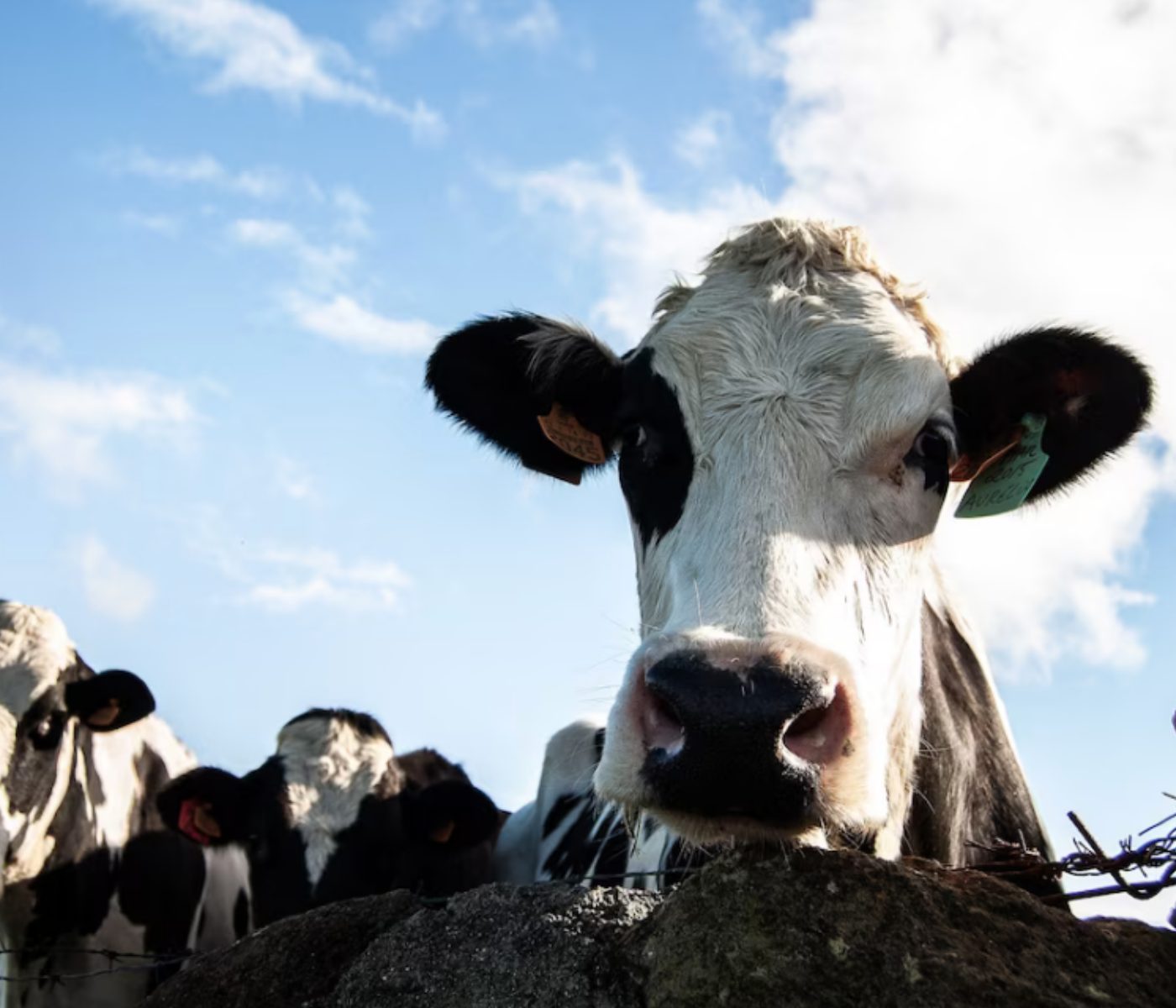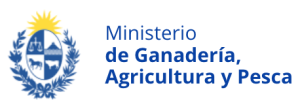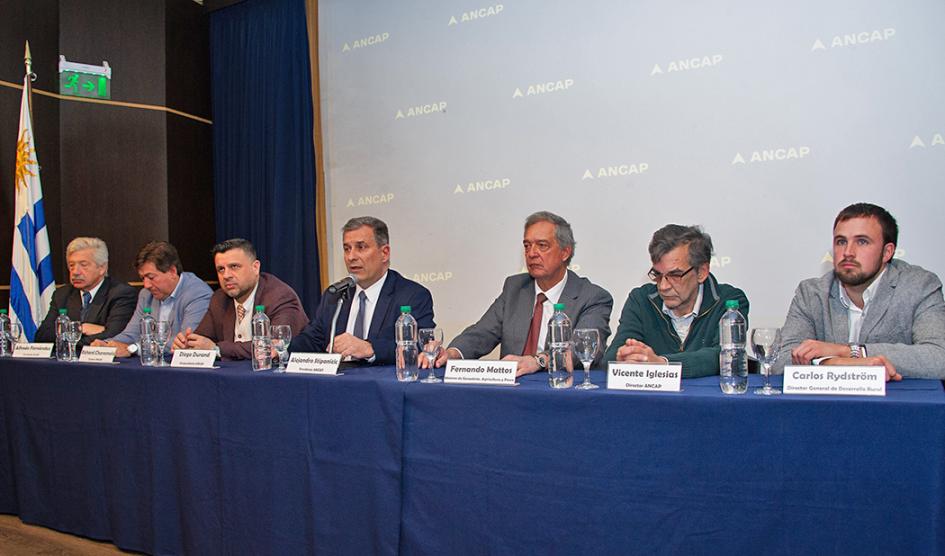 17 Aug 2023
17 Aug 2023

In the face of the ongoing and extended drought impacting Uruguay, the government has implemented various strategies to provide assistance to livestock and agricultural producers. The government-run corporation Ancap is set to provide approximately 100 tons of animal feed to the Ministry of Livestock, Agriculture, and Fisheries (MGAP). This feed is a by-product of the ethanol distillation process conducted by Alcoholes del Uruguay (ALUR) and holds a value exceeding $100,000. The consignment will be allocated among 80 small-scale producers who are actively engaged in the Dairy Basins initiative, a project led by the Livestock Ministry in collaboration with other organizations.
The announcement was made on Monday the 14th by Fernando Mattos, the Minister of Livestock, and Alejandro Stipanicic, the President of Ancap. Also present were the Vice President of the state company, Diego Durand, and the directors Richard Charamelo and Vicente Iglesias; the General Director of Rural Development, Carlos Rydström, and the President of Alcoholes del Uruguay (ALUR), Alfredo Fernández.

Through this agreement, Ancap will provide around 100 tons of animal feed to 80 small dairy producers located in Salto, Paysandú, and Río Negro, who are a part of the Dairy Basins project. This donation is valued at approximately 4,000,000 pesos and will be delivered in the coming weeks as part of efforts to mitigate the consequences of water shortages in the agricultural sector.
Los productores recibirán burlanda de maíz y granos secos con contenidos solubles, de alto contenido proteico y energético, extraídos de la destilación de etanol en la planta de ALUR en Paysandú, explicó Stipanicic. La empresa abastece el 35% de la demanda de este producto en el país, lo que reduce la necesidad de importarlo, señaló.
 Minister Mattos, on his part, explained that the nutritionally rich forage would play a role in diminishing the expenses associated with additional feeding methods that producers had to turn to.He further emphasized the challenges faced by the dairy sector, which, notably, encountered a span of months where accumulating the essential reserves for livestock feeding was unfeasible. Minister Mattos, on his part, explained that the nutritionally rich forage would play a role in diminishing the expenses associated with additional feeding methods that producers had to turn to.He further emphasized the challenges faced by the dairy sector, which, notably, encountered a span of months where accumulating the essential reserves for livestock feeding was unfeasible. |
He underscored that the most extensive aid ever extended to rural producers has now been attained, surpassing previous levels achieved through the establishment of diverse supportive frameworks. Additionally, the Emergency Agricultural Fund has undergone strengthening, facilitated by the intervention of the Ministry of Economy, all with the intention of averting any potential closure of operations by producers.
Mattos recollected that the status of agricultural emergency will persist until September 23rd, when the circumstances will undergo a reevaluation.
Source: https://www.gub.uy/
You may also like to read: “Glycerol: A byproduct of biodiesel as an alternative ingredient for livestock?”
Subscribe now to the technical magazine of animal nutrition
AUTHORS

Nutritional Interventions to Improve Fertility in Male Broiler Breeders
Edgar Oviedo
The Use of Organic Acids in Poultry: A Natural Path to Health and Productivity
M. Naeem
Synergistic Benefits of Prebiotics and Probiotics in Poultry, Swine, and Cattle
Gustavo Adolfo Quintana-Ospina
Hybrid Rye Potential in Laying Hen Feed Rations
Gwendolyn Jones
A day in the life of phosphorus in pigs: Part I
Rafael Duran Giménez-Rico
Use of enzymes in diets for ruminants
Braulio de la Calle Campos
Minerals and Hoof Health in the Pregnant Sow
Juan Gabriel Espino
Impact of Oxidized Fats on Swine Reproduction and Offspring
Maria Alejandra Perez Alvarado